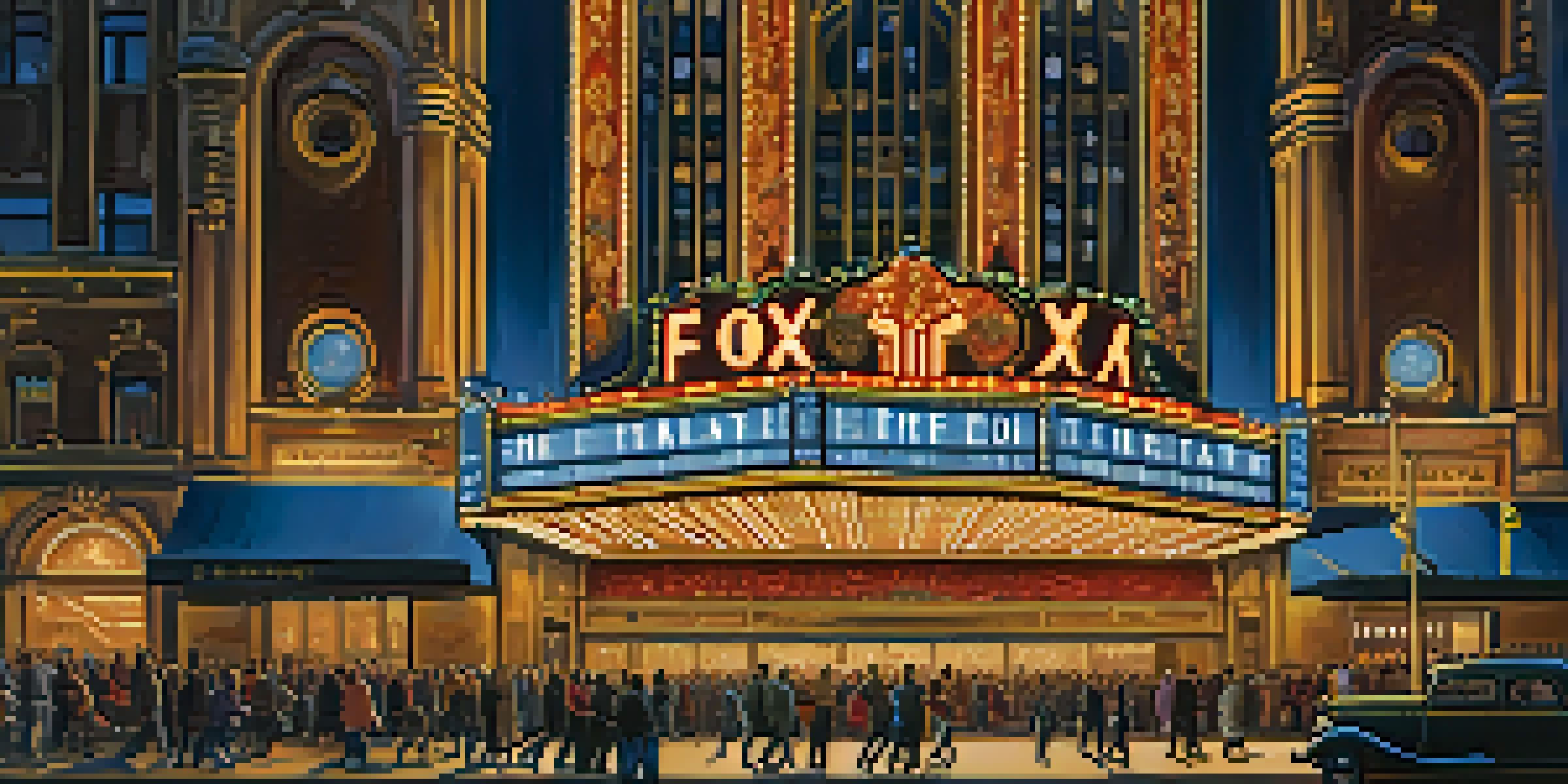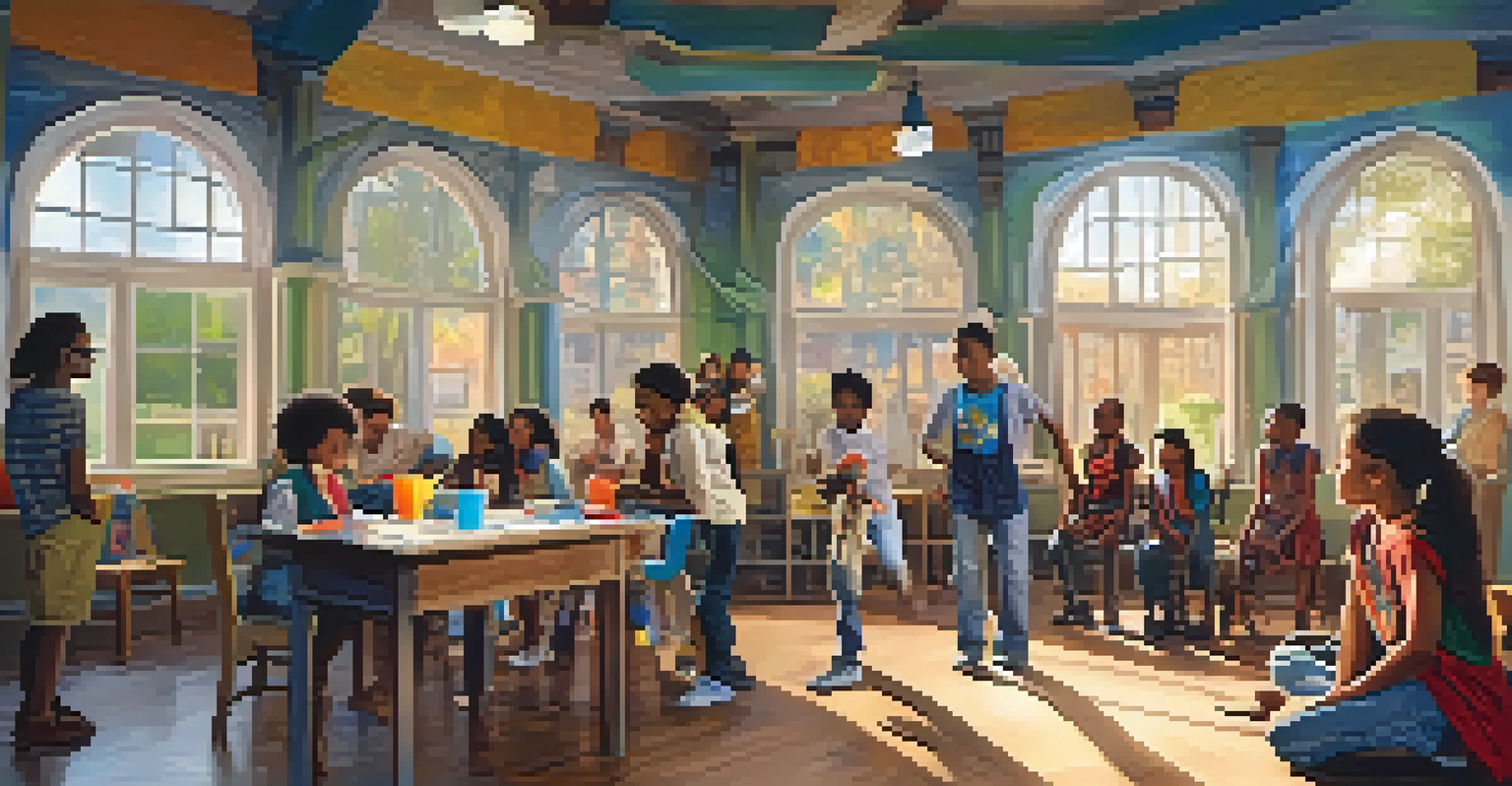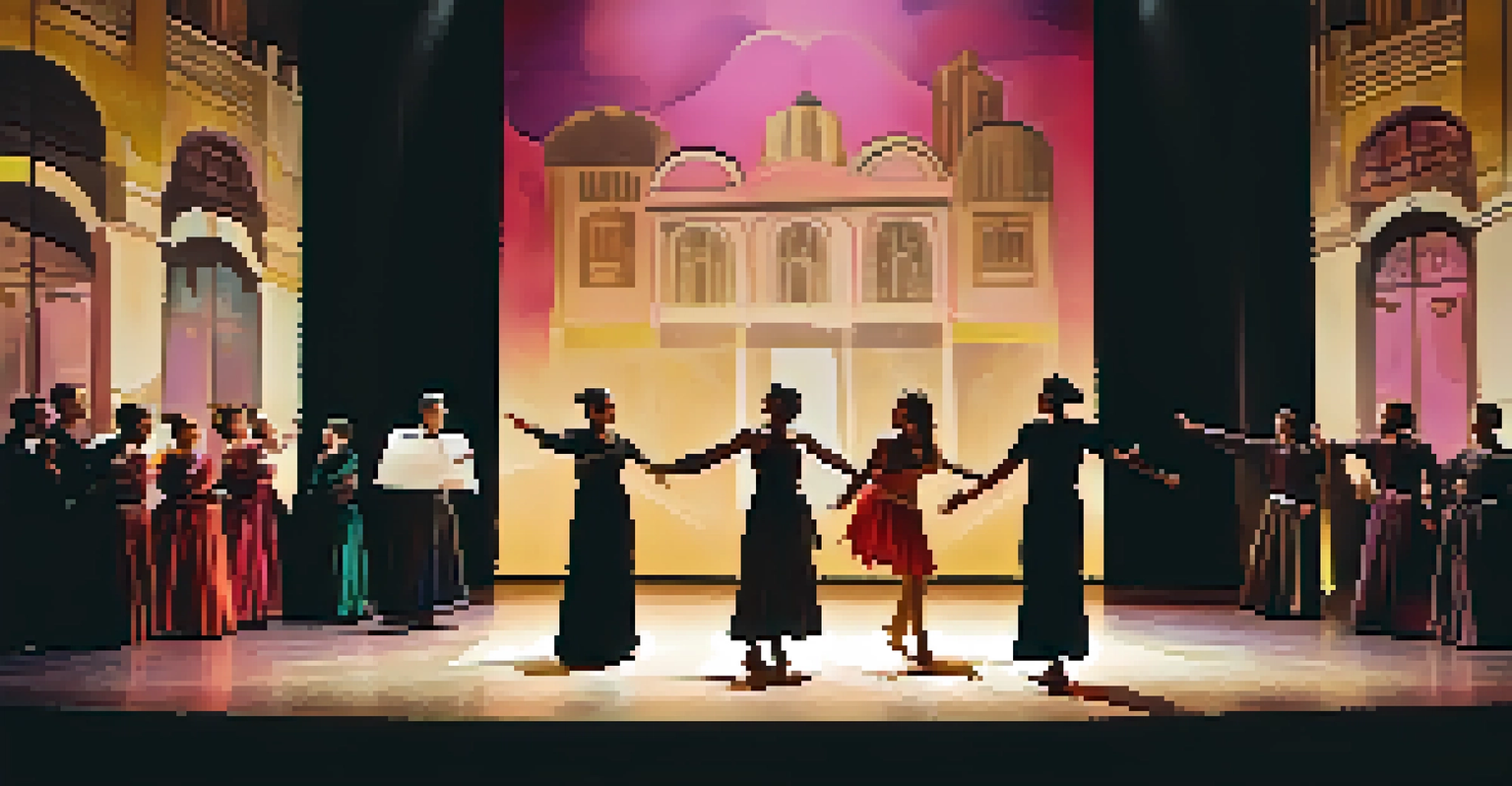Theater Arts in Detroit: A Legacy of Performance and Innovation

A Rich History of Theater Arts in Detroit
Detroit's theater arts scene is steeped in rich history that dates back to the 19th century. The city became a hub for performing arts, attracting talent from across the country. Icons like the Detroit Opera House and the Fox Theatre emerged as cultural landmarks, showcasing performances that captivated audiences for generations.
The theater is a great source of joy and inspiration, a place where stories connect us all.
The establishment of these venues laid the foundation for a vibrant community of artists and performers. Local theaters began to flourish, providing a platform for both emerging and established talent. This rich tapestry of theatrical expression contributed to the city's identity as a center for creativity and innovation.
As the years progressed, Detroit's theater scene adapted to changing times, embracing new genres and styles. The legacy of its performers continues to inspire new generations, ensuring that the spirit of Detroit's theater arts remains alive and thriving.
Key Venues Shaping Detroit's Theater Landscape
Detroit is home to several iconic venues that have become synonymous with its theater arts scene. The Fox Theatre, with its majestic architecture and rich history, regularly hosts Broadway shows and concerts. Another notable venue, the Detroit Opera House, is celebrated for its stunning performances and dedication to the arts.

These venues are not just places to watch performances; they are cultural institutions that foster community engagement. They host events and programs aimed at bringing together diverse audiences and encouraging participation in the arts. This creates a vibrant ecosystem that nurtures talent and promotes artistic innovation.
Detroit's Theater Has Rich Roots
The city's theater arts scene boasts a deep history, with iconic venues like the Fox Theatre and Detroit Opera House serving as cultural landmarks.
In addition to these grand theaters, smaller venues like the Hilberry Theatre and The Detroit Repertory Theatre play a crucial role. They provide a space for experimental works and local productions, allowing for a rich diversity of voices and stories to be told.
Diversity and Inclusion in Detroit's Theater Scene
One of the most remarkable aspects of Detroit's theater arts is its commitment to diversity and inclusion. The city has become a melting pot of cultures, and this is reflected in its performances. Productions often feature stories and perspectives from various communities, enriching the theater experience for all audiences.
Art is not what you see, but what you make others see.
Organizations like the Mosaic Youth Theatre and the Detroit Black Theatre Company are vital in promoting inclusive practices. They provide opportunities for underrepresented groups to shine on stage, fostering a sense of belonging within the arts community. This commitment to diversity not only enhances the quality of performances but also strengthens community bonds.
As a result, Detroit's theater scene is not just about entertainment; it serves as a platform for dialogue and understanding. Audiences leave performances with new insights, making theater a powerful tool for social change.
The Role of Education in Detroit's Theater Arts
Education plays a pivotal role in nurturing the next generation of theater artists in Detroit. Local schools and universities offer robust theater programs, allowing students to explore their creativity and hone their craft. Institutions like Wayne State University have notable theater departments that produce talented graduates ready to make their mark in the industry.
Beyond formal education, community programs and workshops make theater accessible to all. These initiatives encourage young people to express themselves and discover the transformative power of performing arts. They also help to cultivate a deeper appreciation for theater within the community.
Diversity Shapes Performance Art
Detroit's commitment to diversity and inclusion enriches its theater scene, allowing various communities to share their stories and perspectives.
The emphasis on education ensures that Detroit's theater legacy continues to thrive. Young artists are inspired to innovate and experiment, contributing fresh ideas and perspectives that keep the city's theater scene dynamic and relevant.
Innovative Productions and Artistic Experimentation
Detroit's theater arts scene is marked by a spirit of innovation and creativity. Local companies often push boundaries by exploring new narratives, styles, and technologies. This commitment to artistic experimentation sets Detroit apart as a city where traditional and contemporary theater coexist harmoniously.
For instance, many productions incorporate multimedia elements, blurring the lines between theater and visual art. This innovative approach not only captivates audiences but also challenges performers to think outside the box. The result is a fresh and engaging experience that keeps viewers coming back for more.
Detroit's artists are not afraid to tackle challenging themes, often drawing inspiration from the city’s rich cultural and social history. This willingness to address complex issues through performance fosters meaningful conversations and encourages audiences to reflect on their own experiences.
The Impact of Local Festivals on Theater Arts
Local festivals play a significant role in promoting theater arts in Detroit. Events like the Detroit Festival of the Arts and the Motor City Pride Festival showcase a variety of performances, from traditional plays to experimental works. These festivals provide a platform for artists to reach wider audiences and celebrate the diversity of the theater scene.
Additionally, festivals foster collaboration among local theater companies, creating a sense of community and shared purpose. Artists, directors, and producers come together, exchanging ideas and resources that strengthen the overall arts ecosystem. This collaborative spirit enhances the creative energy that permeates Detroit's theater landscape.
Education Fuels Artistic Growth
Local educational programs and community initiatives nurture future theater artists, ensuring the vibrancy of Detroit's theater legacy.
The excitement of attending a festival also encourages new audiences to explore theater. By providing an inviting atmosphere filled with diverse performances, festivals help cultivate a love for the arts among residents and visitors alike.
Challenges Facing Detroit's Theater Arts Community
Despite its rich legacy, Detroit's theater arts community faces several challenges. Funding and resources can be limited, making it difficult for smaller companies to thrive. The economic shifts in the region have also impacted audience attendance, presenting obstacles for both performers and venues.
Moreover, the ongoing need for innovative programming poses a challenge for theaters to stay relevant. As audience preferences evolve, companies must continuously adapt to meet the changing landscape of entertainment. This requires not only creativity but also strategic planning and community engagement.

However, the resilience of Detroit’s theater community is commendable. Artists and organizations are continuously finding ways to overcome these challenges, leaning on community support and collaboration to ensure that the theater arts remain a vital part of the city’s cultural fabric.